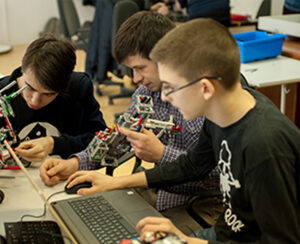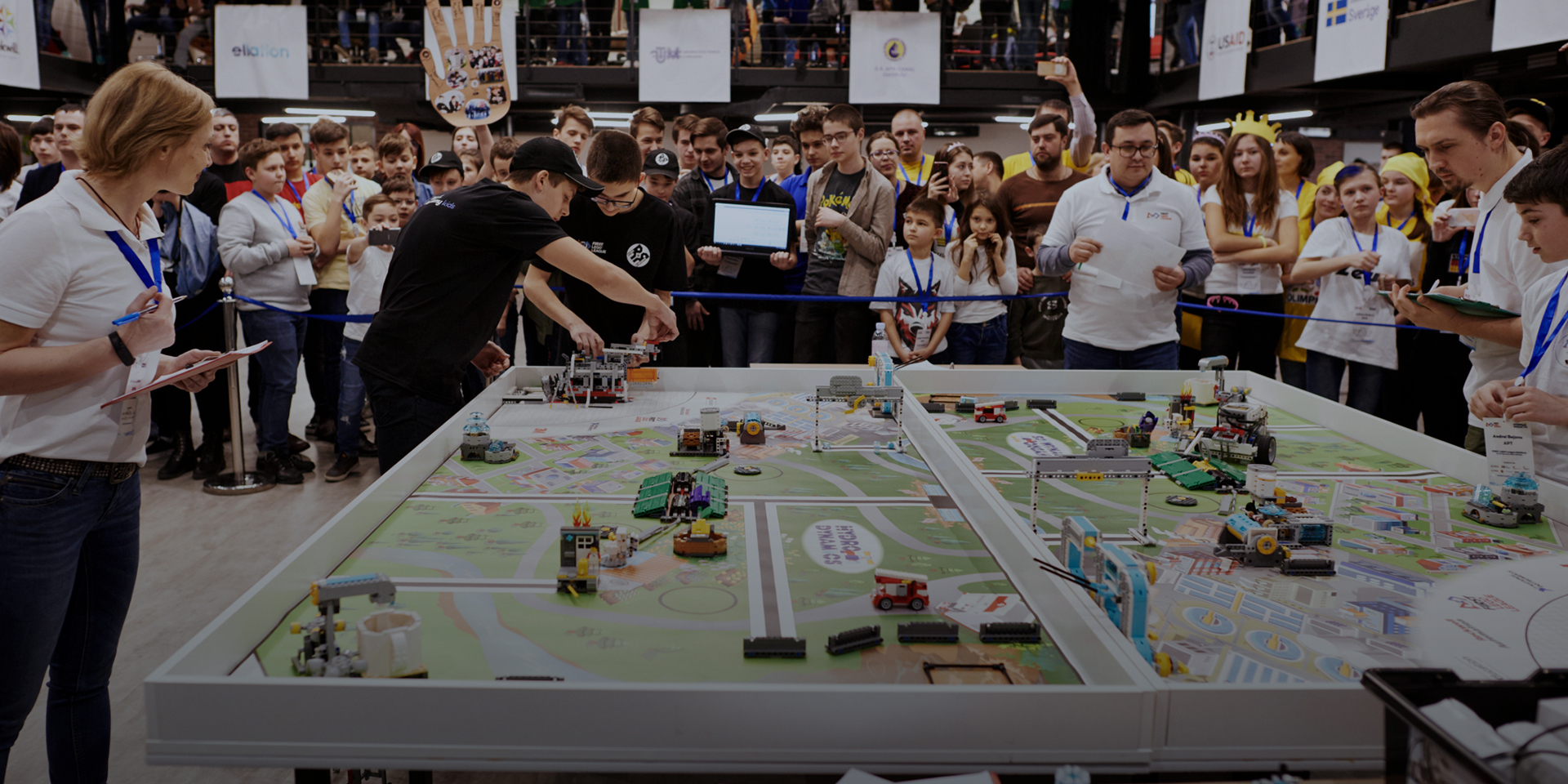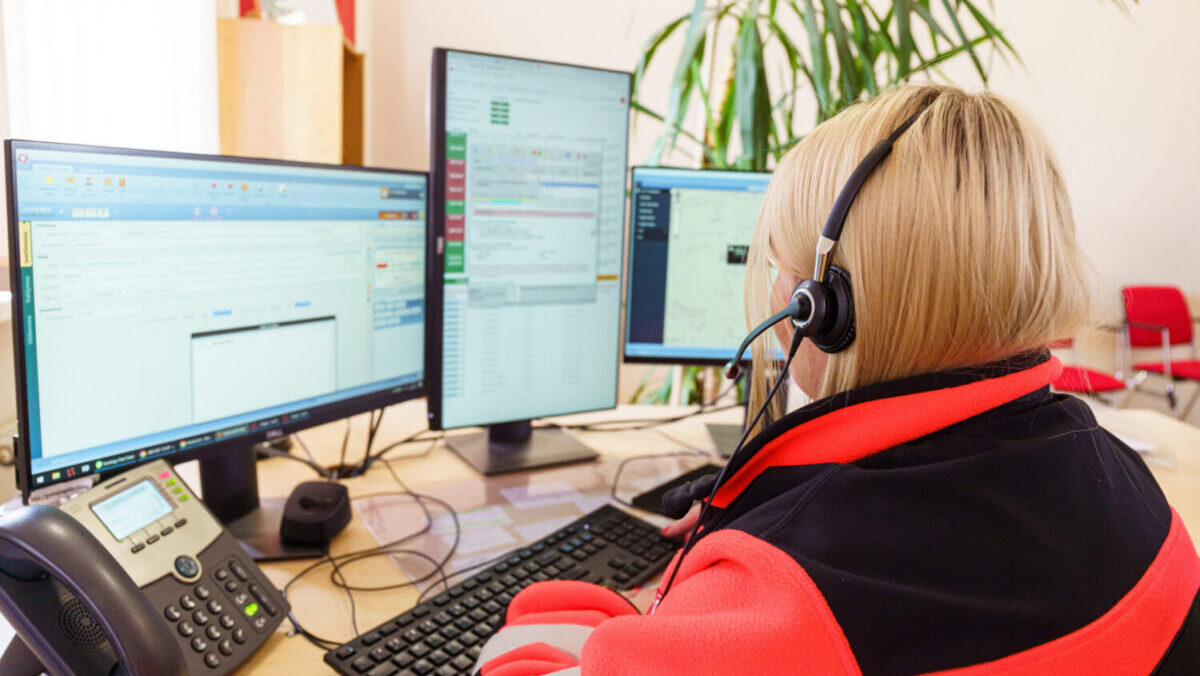When thousands of youth are migrating abroad to seek better employment opportunities, how do you provide a viable economic alternative to encourage them to stay, develop their skills, and invest in their communities? That’s exactly the question that Moldova faced and the Moldova Competitiveness Project (MCP), funded by USAID and Sweden, found an answer in robotics. With the design and implementation of the Educational Robotics program, Chemonics, through the MCP, helped close the opportunities gap by providing Moldovan youth with the science, technology, engineering, arts, and mathematics (STEAM) skills needed to find employment in the country’s rapidly expanding ICT industry.
Building Robots, Building Careers
Moldovan youth are eager to work and earn a decent living for themselves and their families; however, many find that countries outside of Moldova offer better chances for economic prosperity. The result: Moldova is in the grips of a youth migration crisis as thousands of youth move abroad in search of better work. At the same time, though, ICT has emerged as one of the most dynamic industries in the Moldovan economy, and it remains a key priority industry for continued development and expansion by the Moldovan government. The Moldova ICT Industry Competitiveness 2023 strategy, endorsed by both the government of Moldova and the ICT industry, outlines a path of exponential industry growth with the potential to expand the sector to 20,000 tech engineers. This presents a significant opportunity for Moldovan youth, provided they possess the skills needed to thrive in the ICT sector.

Data shows that children who are exposed to educational robotics are two times more likely to major in science, engineering, or other related STEAM fields in university. Armed with this knowledge, MCP embarked on a program of working with the Moldovan Ministry of Education, schools, and teachers to incorporate robotics into educational activities. MCP’s Educational Robotics program included several components, from training teachers in using robotics for educational activities, equipping schools with LEGO robots, creating robotics clubs where students aged nine to 16 experienced a hands-on application of science and engineering, and organizing thematic contests for implementation of competition-based learning. Students were challenged to design, build, and program their robots to perform a variety of tasks and solve real-life problems, and using what they have learned, students have gone on to participate in national, regional, and even international robotics and science competitions. The ultimate goal is to provide students with an inspirational and nurturing STEAM environment so that they will be empowered to pursue STEAM subjects in university, participate in Moldova’s burgeoning ICT sector, and positively contribute to their economy and communities.
Beyond the technical skills gained from this robotics program, students become more creative and develop essential soft skills like problem solving, critical thinking, and working in teams. These skills are often lacking in the Moldovan curriculum; however, they are critical for future jobs in ICT or other STEAM fields and also contribute to positive outcomes later in life.
Robotics Makes a Mark on Moldova
One of the biggest questions that any program must answer is how do we make this initiative sustainable? MCP’s answer was local ownership and the project accomplished this through investment in local capacity building. MCP encouraged local community involvement to co-fund robotics kits, competitions, and other essential investments. To open a robotics club through the Educational Robotics program, schools and libraries in Moldova had to pass a rigorous application process, starting with an intensive training and then proving their commitment to the program. Applicants committed by co-funding certain aspects of the program, including robotics kits, robotics classes equipped with computers, teachers’ wages, and competition expenses. Schools were encouraged to establish buy-in with the community by enlisting the support of private businesses, local governments, parents, and community residents.
After starting from a small pilot in six schools, enthusiasm grew rapidly. More than 7,000 Moldovan youth and 200 teachers participated in the program, with a third of the participants being from rural areas.
With the help of this program, students have gone on to compete and win international robotics competitions including the FIRST LEGO League. In a true testament to the success of the program, the Moldovan Ministry of Education has even introduced robotics into the optional curriculum, increasing access to STEAM education and innovative methods of learning.
A survey developed by MCP and delivered to 1,400 beneficiaries of the Educational Robotics program showed that the program helped participants perform better: 73 percent of students experienced an improvement in computer science, 47 percent experienced an improvement in physics, and 33 percent experienced an improvement in math. Taking part in robotics has also made 55 percent of students more creative, demonstrating a highly positive impact across the STEAM spectrum. The program also improved participants’ relationship with peers, teachers, and parents.
Preparing students for a rapidly evolving 21st century sector requires a 21st century solution. Through the locally-supported and locally-driven Educational Robotics programs, MCP reignited students’ passion for and knowledge of STEAM subjects and set them on a path towards success in the ICT sector. Complementing the hard skills, students in this program also strengthened valuable soft skills to ensure that their educational development was inclusive and holistic. The future is certainly brighter for Moldovan youth as a result.



